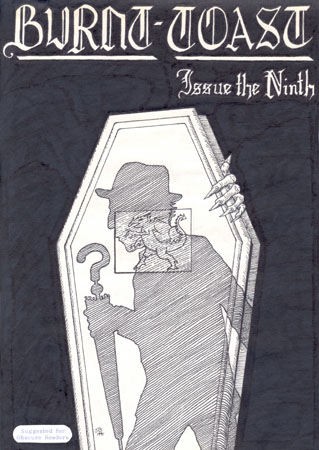
Posted on 06/18/2003 11:13:46 AM PDT by presidio9
On June 19, 1953, six-year-old Robert Meeropol was shooed outside to play ball with a friend while his father and mother were being executed.
AFP/Intercontinentale/File Photo
Robert's parents were Julius and Ethel Rosenberg, whose execution for passing atomic secrets to the Soviet Union remains, for many, an enduring symbol of the anti-communist hysteria of the McCarthy era.
In a memoir published to coincide with the 50th anniversary of the Rosenbergs' death by electric chair, Meeropol recalls watching television at a friend's house with his elder brother Michael when news flashed across the screen that their parents' final appeal had been turned down.
"I could not read the words and do not recall Michael's reaction, but he remembers moaning, "That's it, good-bye, good-bye."
Robert was ushered into the backyard where he played until after the executions had taken place and it was too dark to see the ball.
"I doubt I fully comprehended that my parents had just been killed, but I feigned complete ignorance to avoid the commotion, and went to bed," he wrote.
There are those who believe the Rosenbergs were guilty and deserved to die, while others feel the sentence was too harsh and some think they were framed.
Contrary to the public perception -- fostered by the government at the time -- that the Rosenbergs had all but handed Stalin the bomb, they were never charged with treason, or even with spying.
They were tried and convicted in 1951 of conspiracy to commit espionage, by enlisting Ethel's brother, David Greenglass, to steal secrets from the Los Alamos atomic laboratory where he worked as an army machinist.
Greenglass confessed to passing information and identified his wife Ruth and the Rosenbergs as participants in a Soviet spy ring.
The case against Ethel Rosenberg was particularly flimsy and rested solely on Greenglass's testimony that she had typed up messages containing US nuclear secrets.
Greenglass, who was spared execution for his cooperation, publicly admitted in 2001 that his trial testimony regarding Ethel's involvement was false, saying he was pressured by the prosecution to commit perjury -- and did so to protect his wife from prosecution.
Declassified files suggest the FBI (news - web sites) had charged Ethel with a capital crime in the hope that fear of having their two young children orphaned would pressure one or both the Rosenbergs into a confession.
The ploy failed as both continued to protest their innocence right up to the end.
"She called our bluff," William Rogers, the deputy attorney general at the time, said shortly before he died in 2001.
The Rosenbergs were executed despite protests in the United States and abroad, as well as numerous appeals for clemency, including one from Pope Pius XII.
Documents that have since come to light -- including information released after the collapse of the Soviet Union -- have removed most doubts that Julius Rosenberg was involved in some kind of espionage.
But Meeropol, while no longer believing in both his parents' "unequivocal innocence," still argues they were ultimately victims of their time.
"They were unrepentant communists during a period when even repentant communists were in trouble," he told AFP in an interview.
"Neither committed the act for which he and she were executed. And the US government knew all along that Ethel Rosenberg was not an espionage agent of any kind."
Meeropol was brought up by communist friends of his parents and lived anonymously for nearly 20 years before publicly acknowledging his mother and father.
"I have no resentment towards my parents. I never felt they abandoned me for their beliefs," he said. "I'd much rather be the child of Julius and Ethel Rosenberg than the child of David and Ruth Greenglass."
In 1990, Meeropol established the Rosenberg Fund for Children, which provides educational grants for children of activists who have been injured, jailed or lost their jobs as a result of their beliefs.
Meeropol has few illusions that his parents' case will ever be reopened and their convictions quashed.
"Strange things happen in this world, so I don't want to close all hope. But I'm not optimistic," he said.
As for his parents iconic stature, Meeropol has mixed feelings.
"They have been both demonised and canonized," he said.
"This whole thing of idealising people is a tremendous mistake from a political perspective. If we demand perfection of our activists, we're setting ourselves up to be perpetually disillusioned, because people aren't perfect."

As for Ethel's guilt or innocence, I think it is clear that she was guilty at some level -- if not of espionage itself, certainly of knowledge of her husband's espionage. I refuse to believe that any man who loved his wife (and, by all accounts, Julius loved Ethel) could allow her to go to her death if he believed her to be innocent.

Ames helped the Soviet Union, and Pollard's intelligence eventually ended up in Chinese hands. In my book that qualifies for execution.
Disclaimer: Opinions posted on Free Republic are those of the individual posters and do not necessarily represent the opinion of Free Republic or its management. All materials posted herein are protected by copyright law and the exemption for fair use of copyrighted works.